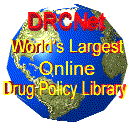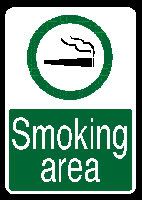The Drug Policy Alliance (DPA) is the nation's leading organization of people who believe the war on drugs is doing more harm than good.
In their vision of tomorrow, people are not punished simply for what they put into their bodies but only for harm done to others. They fight for drug policies based on science, compassion, health and human rights.
DPA is working hard state by state to educate lawmakers about marijuana and to make cannabis available for medicinal purposes for seriously ill people. Through DPA's advocacy and commitment from patients and the governor, a compassionate use bill brought medical marijuana access to New Mexico in early 2007. DPA is doing similar work in states ranging from Connecticut and New Jersey to Alabama. For more information on our work in the states, please visit our state-by-state page. For more background on marijuana regulation and criminalization, read on.
In 1937, with the passage of the Marihuana Tax Act, the United States effectively banned recreational and medicinal use of cannabis.(1) Many nations followed suit and in 1961, through the United Nations Single Convention on Narcotic Drugs, fifty-four nations agreed to "[a]dopt such measures as may be necessary to prevent the misuse of, and illicit traffic in the leaves of the cannabis plant."(2) Despite such restrictive control, cannabis has become the most widely used illicit drug in the western world.
Since the 1970s pressure has been building to move away from the total prohibition of cannabis. Over the past century, numerous reports from independent, government-sponsored commissions have documented the drug's relative harmlessness and recommended the elimination of criminal sanctions for consumption-related offenses.(3) Opinion polls show growing support for cannabis reform and scientific, medical and patient communities consistently provide evidence of the drug's therapeutic potential. As the public increasingly demands legal access to cannabis for both medicinal and other responsible uses, policy makers are being forced to consider how to regulate the drug.
The Netherlands has led the way in cannabis reform since it amended its Opium Act in 1976 to distinguish among drugs according to levels of risk. Identifying cannabis as a "soft drug," the Dutch government decided to treat possession and cultivation of up to 30 grams as activities "not for prosecution, detection or arrest." This policy of tolerance paved the way for the "coffee shop system" of publicly distributing both marijuana and hashish.
More recently, in 1996 the voters of California passed Proposition 215, the Compassionate Use Act, so that sick and dying patients could legally use marijuana for medicinal purposes. Cannabis buyers' clubs, not unlike the Dutch hash coffee shops, have emerged to provide marijuana to those with legitimate medical need. Despite the federal government's ongoing efforts to stymie Prop. 215 by shutting down the clubs, states continue to consider similar ballot initiatives.
Cracks in prohibitionist cannabis control systems constantly form. These cracks take different shapes in different countries, reflecting the diversity of political, social and cultural conditions. As clinical trials get started in the United Kingdom, as more Australian states lower penalties for personal possession and use, and as more continental European countries choose not to enforce criminal sanctions for personal possession, alternative ways of regulating cannabis will continue to develop. Whether individual governments choose to play a role in the drug's responsible regulation remains to be seen.
Notes:
-
Medicinal use was still technically legal but the tax proved to be prohibitive for most therapeutic uses.
-
Quoted in Abel, Ernest L. Marihuana, the First Twelve Thousand Years. New York McGraw-Hill. 1982. p.254.
-
For more information on these reports see Morgan, John P. Zimmer, Lynn. Marijuana Myths, Marijuana Facts: A Review of the Scientific Evidence. New York: The Lindesmith Center. 1997. pp. 1-
If you want to see a statement of objectives and/or learn more about DPA and it's work please go HERE





















No comments:
Post a Comment